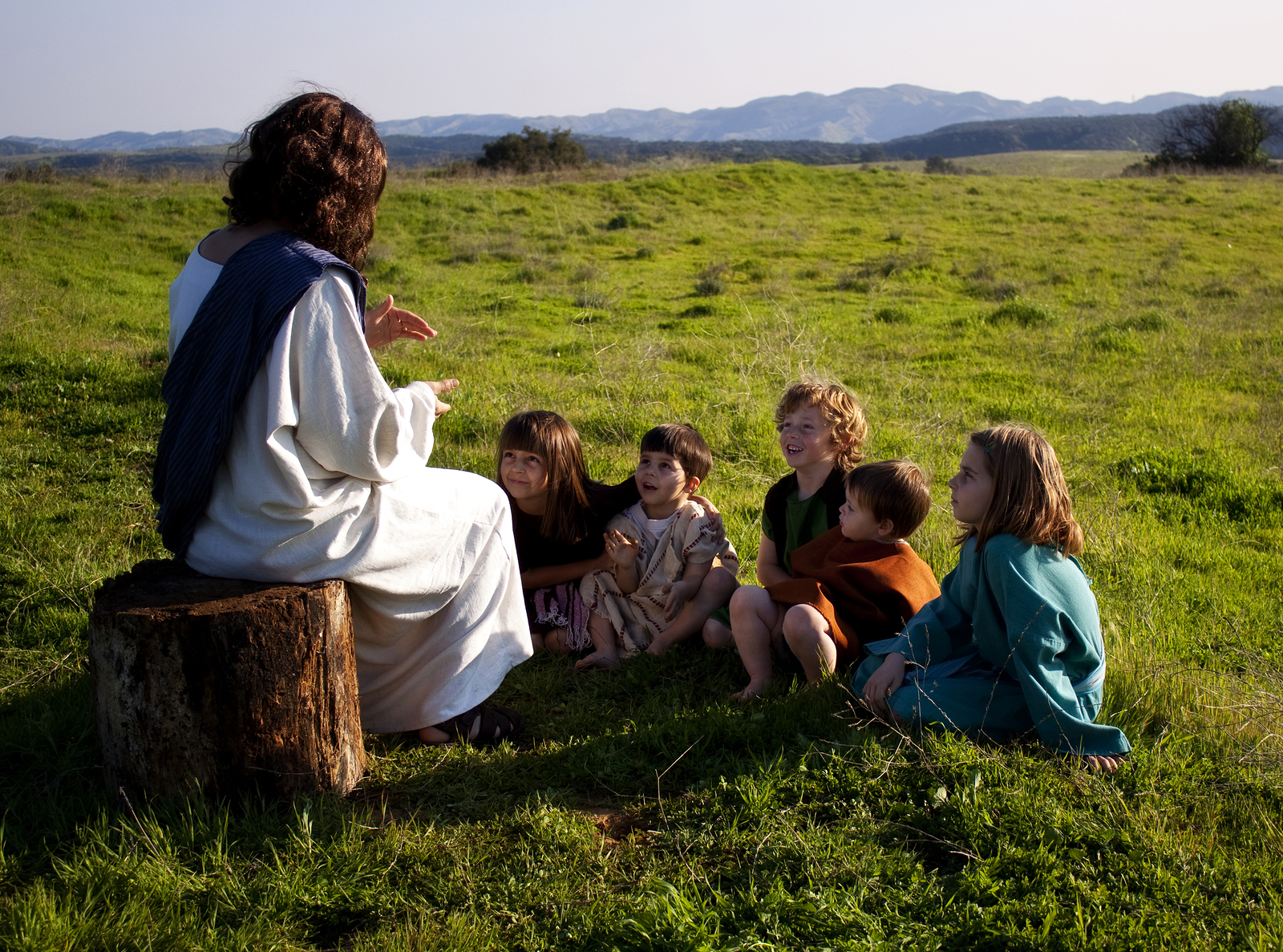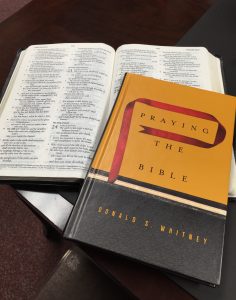
by Aaron Hanzel | Jul 20, 2016
I read an article recently, exploring the economic growth of Bricktown, the entertainment district of Oklahoma City. The article spoke about how Bricktown may be gradually becoming “overly saturated.” Apartment complexes, restaurants, theater and music venues have all been a major part of the hot spot’s growth, both culturally and economically.
When I think of fun, I’m reminded of my Grandpa. He has a saying that I’ve heard several times growing up “We don’t ever get tired of having fun.” A phrase spoken, as if it were a royal decree, when we were to go and get ice cream or go for a burger. My siblings and I knew without a shadow of a doubt, we were about to have fun. All of the day’s boring or monotonous tasks were all soon to fade away with that simple proclamation.
So the question has to be asked. Is it possible to have “too much fun”? Is it possible to overly saturate an area of our city known to be a place for fun? Perhaps we take the question even further and apply it to our spiritual walk. Is it possible to have too much of Christ in our lives?
Instinctually, as followers of Christ, the answer is “no.” How you could have too much of Christ in your life? If anything, we crave and pray for more of Christ in our life. This, I believe, is the difference between a secular approach and a Christian approach to saturation.
In this world, we can always have too much fun. If every day I woke up to grandpa’s proverb of “…never having too much fun.” That’s exactly what would happen.
Two things eventually surface. 1) Soon the burgers and ice cream would become the boring and monotonous chores we were escaping in the first place. 2) Our time with grandpa would be completely hindered by the ugly view of the now “task-full” errands. Grandpa would be someone we avoided, instead of admired.
Galatians 5:16-17 says, “So I say, walk by the Spirit, and you will not gratify the desires of the flesh. For the flesh desires what is contrary to the spirit, and the Spirit what is contrary to the flesh. They are in conflict with each other, so that you are not to do whatever you want.”
Our craving for Christ may be similar to the secular world for the fact that we always want more and enjoy what we receive. But praise God, the overly abundant amount of love and grace we receive can never satisfy! Overly-saturated-earthly fun is, by all accounts, attainable and self-destructive.
Saturating every corner of your life with scripture, prayer, learning more about the Gospel is our desire, our worship, and our fulfillment of faith. Cast aside earthly desires that attempt to infect the relationship with The Almighty.
“We don’t ever get tired of having fun” will always hold a special place in my life. I’m glad it has new meaning for my life with Christ. I pray that the presence of Christ never ceases to make you hungry for more.

by Ryan Smith | Jul 18, 2016
We love stories. Whether it’s a sweeping epic like Les Miserables or a thirty-minute episode of The Office, we love the unfolding narrative of characters, conflict, and corresponding consequence.
We like stories because, in some way, the best stories tell our story. While we never participated in the French Revolution, and we know Krypton is not a real planet, we can identify with Jean Valjean’s struggle to make a good man grow from dark roots. We recognize the ongoing battle of good versus evil that daily plays itself out on our Twitter feed and news channels though void of red capes and laser eyes.
Even Jesus knew the power of story. He was known for His ability to communicate direct and honest truth through the medium of parables – stories that expressed greater meaning.
That is one reason I believe the Holy Spirit gave us the Bible in its form. In essence, it is a collection of stories that tell one big story. Granted, there are many genres in the Scripture from poetry to apocalyptic literature, but even those tell stories. Song of Solomon is indeed poetry, but in essence is a story of young love. This young love is the story of God and his people, Christ and his church. Even David’s psalms and Paul’s letters cannot be divorced from their relationships and circumstances. They are landmarks of their unfolding stories.
I say all of this to arrive at an interesting concept I read recently. The idea stems from a notion by mythologist Joseph Campbell. His conclusion is that all stories are essentially the same story in different forms. He calls this narrative template “the monomyth.” In his book, The Hero with a Thousand Faces, Campbell describes this monomyth – the story that is every story: “A hero ventures forth from the world of common day into a region of supernatural wonder: fabulous forces are there encountered and a decisive victory is won: the hero comes back from this mysterious adventure with the power to bestow boons (benefits or blessings) on his fellow man.”
As I read this quote, I was struck by two things. One, I was struck by how true this is. Disney is the master of storytelling. Virtually every Disney movie involves an ordinary character thrust from the world they know into an unfamiliar setting in which they must struggle against a particular foe whom they ultimately conquer. They then return as a hero who has created, or can now create, a better existence for others.
It’s not only Disney that incorporates this model. This strand is woven across time, culture, and worldview. From Homer’s The Odyssey to Rowling’s Harry Potter, this journey is recast, remembered, and retold by every generation.
Campbell, a non-Christian, also believes this extends to religion. He believes all religions are true, but none are literal. They are simply the retelling of the same story.
Consider Mormonism. Joseph Smith, a common man, encounters the supposed angel Moroni, receives the book of Mormon, and despite persecution, relates the teachings and directives of the book to his followers establishing a new religion.
Consider Islam. Muhammad, an ordinary caravan manager goes to a cave and is thrust into a calling as “The Prophet” by the angel Gabriel. He then turns a small group of persecuted followers into a nation of people devoted to the Koran.
In virtually every religious story, we find these similar elements. We even find them in the Bible in the calling of Abraham, the life of Moses, and the conversion of Paul.
However, this leads me to the second thing that struck me about Campbell’s idea. While this story echoes in many different forms – even in our own experiences – it is not true for Jesus.
Jesus is the anomaly.
Christianity is not about a common man who encountered God, but about God who became a common man. Instead of being drawn out of an ordinary world into a world of “supernatural wonder” he left the supernatural wonders of heaven to walk the ordinary dust of earth. His victory is won through his own loss. His call is not to bravery and self-empowerment, but to sacrifice and repentance.
This is why so many had trouble with Jesus during his lifetime and why so many struggle with him today. Jesus’ message is not our story, but its reversal.
So is Christianity telling the wrong story?
The Bible is not telling the wrong story, it is telling a greater story. Many have tried to reduce Christianity to a retelling of this monomyth with people at the center. As if the Bible were a map to personal victory or a means to supernatural experience and blessing.
Yes, the story of the ordinary meeting the extraordinary is seen throughout Scripture and is relatable to us as we walk through life in faith. It is the story of our Pilgrim’s Progress. But these stories are not the ends. Rather they are the means of telling a greater story.
Whereas movies, books, and even other religions tell a relatable story (and therefore ring true with so many people), they fail to reach the greater conclusion. They point to us and our story. Christianity points all of our stories to a bigger story. In this story, victory is about sacrifice. Power is about humility. Ultimately, instead of identifying with the hero, we have to acknowledge we are the villain. We are the aggressor – the antagonist. We are without means of victory. Our sinful hearts are the force that must be encountered and defeated.
This is why Christianity is a hard sell. We like the story where we identify with the victor. We want to see ourselves as the main actor – thrust into the supernatural where we fight for our dreams, overcome our obstacles, and ultimately emerge victorious with a message of hope for others to receive the same benefits we have found.
Some of these elements are biblical. But if that is your full version of Christianity, it is an anemic version.
It is not wrong to seek God’s blessing. It is not wrong to fight sin or believe a walk with God is a supernatural journey. But while these are elements of our story, they are not THE story. They point to a greater reality of who God is, what sin has done, and how God restores this broken world to himself.
The greater story is not that we can get to heaven, but that heaven’s King came to us.
The story is not of our triumph, but of God’s sacrificial victory. Ultimately the story is not about us and our adventures at all. It is about the glory of God in the Gospel.
Let our every story point to His story.

by Amy Spear | Jul 12, 2016
Sometimes in life we go down a road that we know is slippery. A path we know good-and-well God has not called us to! Yet, we choose to pursue it. We test the waters. We linger a little too long. We start down the path, ignoring the whisper from the Holy Spirit, warning us of the consequences that are to come, and we keep on walking. Why do we insist on gambling with God, promising ourselves we won’t end up the way He says we will?
The Israelites did the exact same thing in 1 Samuel chapter 8. Let’s see how they fared with their gamble against God:
The Israelites ask their priest Samuel,
“You are old, and your sons do not follow your ways; now appoint a king to lead us, such as all the other nations have.” But when they said, “Give us a king to lead us,” this displeased Samuel; so he prayed to the Lord. And the Lord told him: “Listen to all that the people are saying to you; it is not you they have rejected, but they have rejected me as their king. As they have done from the day I brought them up out of Egypt until this day, forsaking me and serving other gods, so they are doing to you. Now listen to them; but warn them solemnly and let them know what the king who will reign over them will claim as his rights” (1 Sam. 8:6-9).
The Israelites wanted a king, just like all the other nations around them. Yet, they weren’t supposed to be like all the other nations. God chose them to be set apart, different from everyone else on earth. They were the nation that was to reveal God to the world.
Yet, they kept asking and pursuing the wrong path.
God warned them of all the things that would happen if they chose to disobey Him and put their trust in someone else. The king they were asking for would do nothing but take from them! Take their sons, take their daughters, take their fields and vineyards, take a tenth of their grain, take their cattle, take a tenth of their flocks, take, Take, TAKE (vs. 10-18).
Idols are funny that way. They can’t do anything but take!
“But the people refused to listen to Samuel” (vs. 19).
So God tells Samuel to give the people what they want. Let them pursue the path He sternly warned them against!
Wow! Does that scare anybody else but me?!
Sometimes, God gives us what we continue to ask for because of our own stubborn ways. He won’t force His ways upon us. We must follow Him whole heartedly and willingly. And if we won’t, then He will let us make our own foolish choice.
When we put our trust in anything other than God our Father, we will follow idols and things that will only take from us too! Take our Hope, take our Love, take our Peace, take our Grace, take His presence, take, Take, TAKE!
Eventually, we realize that we can give no more. There is nothing left in us to give. The path that once looked so inviting, so promising, has now taken everything it could! We desperately need to be filled! We long for someone to give us what we can’t give ourselves!
God is the only one who can fill us and give what our souls truly desire. Give us what we don’t deserve. Give us everything He is. Give us back our hope, joy, and peace. Give us… Himself!
Let us not be like the Israelite! Don’t dismiss the warnings you hear. Heed God’s calling to choose a different path. Chose the path He has laid out for you. One that leads you straight into the giving arms of your Father!

by Rusty McMullen | Jul 6, 2016
I have identified a problem. My prayer life is boring! I pray the same old things about the same old things. Constant repetition leads to boredom. Boredom leads to apathy. Apathy leads to disengagement. I am an unengaged prayer. How did this happen? I am a pastor. I study the Word of God regularly. I attend church. I practice spiritual disciplines.
By all considerations, it would seem that my prayer life would be strong, that my prayers would carry power, that my communion with God in prayer would be intimate. Yet, I find myself praying the same old things about the same old things, and it is a problem.
I became acutely aware of this problem last year. I was attending a seminar on spiritual development when the professor shared with us that we would spend three hours in prayer and solitude. THREE HOURS! What would I do for three hours?
As the time of solitude began, I quickly realized my prayer life was not up to par for such a significant time of communion with God. In previous years, I had been taught a model of prayer built upon an acrostic of the word A.C.T.S. (Adoration, Confession, Thanksgiving, and Supplication). I began praying and moved through these four points of prayer. I assumed that I had at least used 15 minutes or so of the three hours designated.
When I checked my watch, I was astonished to realize I had only been praying for three to four minutes! If you are like me, you find yourself battling to engage in meaningful, intimate prayer. Your mind wanders when you pray. You run out of things to say. Your prayers are more about you than anything else. You say the same old things about the same old things. Through these struggles, you end up forsaking prayer instead of engaging it. This leads you to the decision that something is wrong with you.
Donald Whitney, professor of biblical spirituality and associate dean at the Southern Baptist Theological Seminary in Louisville, Ky., suggests otherwise. “No, the problem is almost certainly not you; it’s your method. If you have turned from living for yourself and your sin and have trusted Jesus Christ and his work to make you right with God, God has given you the Holy Spirit. And if you are seeking to live under the lordship of Jesus Christ and the authority of God’s Word (the Bible), confessing known sin and fighting lifelong tendency to sin instead of excusing it, then the problem of boredom in prayer is not you; rather, it is your method.” (pg. 15)
So how do you change your method to create a more powerful prayer life? I would like to recommend a powerful, little book that has revolutionized my prayer life — Praying the Bible by Donald S. Whitney.
Whitney recommends a solution to this prayer problem, “when you pray, pray through a passage of Scripture, particularly a psalm.” (pg. 27) Whitney urges the reader to consider the ramifications of praying scripture back to God. His outline is simple, read a verse, stop and pray that verse back to God. When you have nothing left to pray on that verse, move to the next one. That is it. It is that simple.
This small but powerful book has intensified my personal time with the Lord. My prayers are more effective, fervent, and God-centered. I no longer run out of things to pray. I am less distracted than ever before. Praying Scripture works! Whitney finally observes, and is right, “Anyone with a Bible and the Holy Spirit has everything necessary to enjoy God in prayer and to banish the boredom born of repeating tired phrases about the same old things.” (pg. 76) The pages of Whitney’s work will help you to stop saying the same old things about the same old things and create in you a passionate, powerful, posture of prayer.

by Ginger Gann | Jun 28, 2016
Saturday afternoon is made exclusively for “balancing”, according to five-year-old little me. Back then, on any given Saturday, there I’d be with both arms stretched out on either side teetering up and down like a seesaw, while balancing for miles along fence tops, curbs, and any other flat surface in my path.
One day, after hours of balancing, I took a rest in the seat of a playground swing. Pumping my little tan legs and propelling myself up and back and back and forth -a particularly high back-swing took me high enough to catch a glimpse of the metal bar that forms the top structure of the swing set.
“Hmmm, could I …” I asked myself? Climbing to the top of the swing set and proceeding to the middle of the bar, I sat down. “Hmmm, could I balance my body by only the tops of my feet?” I wondered.
Firmly gripping the warm metal bar with my knees, my belly muscles tighten to slowly lay my body backward, until the daggling shadow of my fingertips almost touch the ground. Rocking back and forth, my hair defying gravity, I gather all my courage to release my knees and grab the bar with all the strength the tops of my size one little feet can muster.
The next thing I remember is waking up in the hospital with two black eyes and a nose I no longer recognize. Many years have passed since the day I escaped both a broken neck and my mother “wringing it,” yet I’m still obsessed with balancing.
Although I don’t spend much time at the playground these days I’m still swinging back and forth, attempting to balance. These days, I am balancing things like trust and control, joy and worry, thanksgiving and disappointment. After all these years, on any given day, here I’ll be with arms stretched out like a teeter-totter trying to balance the raw reality of my life, with the hope and promise of my future with God.
How do I balance both my responsibility to daily remain steadfast and trusting, with the ever-present inclination to doubt God when He delays, and then run off on a path of my own making?
“Do not be anxious about anything, but in every situation, by prayer and petition, with thanksgiving, present your requests to God. And the peace of God, which transcends all understanding, will guard your hearts and your minds in Christ Jesus” (Phil. 4:6-7).
The obsession, the challenge …balancing the ever-present tension between transparent, authentic, real day-to-day living (and we all know what that feels like) on one hand, while continually standing on, holding onto, and relying on the hope, promise, and prevision from an Almighty– God (El Shaddai) on the other hand.
Let’s agree maintaining balance is hard!
In 2012, Nik Wallenda became the first person to safely cross Niagara Falls by walking a tightrope. This was not an easy feat. According to wikipedia.org, Wallenda wore a microphone for the event which allowed the public to listen in throughout the walk. Wallenda’s chosen path took him 1,800 feet across the widest part of the falls. He slowly inched his way across the slippery wire, praying out loud and praising Jesus Christ as he went.
 Wallenda’s walk resembles our walk with Christ. Our walk is also a balancing act where our faith is concerned. When walking a tightrope of faith, to maintain firm footing, the walker must hold confidently onto a similar balancing beam — God’s word. The walker must also remain focused, as loss of focus is a loss of balance.
Wallenda’s walk resembles our walk with Christ. Our walk is also a balancing act where our faith is concerned. When walking a tightrope of faith, to maintain firm footing, the walker must hold confidently onto a similar balancing beam — God’s word. The walker must also remain focused, as loss of focus is a loss of balance.
The loss of balance can send us into a spiritual free-fall quickly destroying our faith, resulting in the death of our joy, hope, trust, patience, peace, love, and forgiveness.
The Bible puts it this way in Proverbs 4:25-27, “Let your eyes look straight ahead; fix your gaze directly before you. Give careful thought to the paths of your feet and be steadfast in all your ways. Do not turn to the right or the left; keep your foot from evil.”
“Great advice…” my right side says.
My left side says “but this balancing act is hard, this life is scary, and this world is dangerous”.
I teeter- I totter.
I don’t know about you, but sometimes as I continue to walk, my feet get really slippery.
The particular tightrope crossing Wallenda set out on is considered by the critics to be one of the most dangerous stunts of all time. Mr. Wallenda’s promoters concur and demanded Wallenda be fitted with a safety harness throughout the crossing, for the first time in his career.
Our Promoter, our God, knows the challenges we face daily as we walk. He whole heartily agrees life here on Planet Earth can be difficult. Not only do we have the balance beam of God’s word (and His promises) but, like Wallenda, we also have been fitted with a safety harness. The Holy Spirit, the safety-net which firmly guides our feet as we walk step-by step with Him.
2 Corinthians 5:5 says, “Now the one who has fashioned us for this very purpose is God, who has given us the Spirit as a deposit, guaranteeing what is to come”.
What this means for me and for you is we can rest in the assurance that even if our foot should slip, no matter what knocks us off balance, God’s got this! He won’t let us fall!
Blessings of balance as you walk with Him.

by Ryan Smith | Jun 22, 2016
WAKE UP! WHY ARE YOU ASLEEP? GET UP!
WHY ARE YOU REJECTING US? WHY ARE YOU HIDING?
YOU FORGET US WHEN WE NEED YOU MOST?
WE’VE DONE ALL WE CAN DO – GET UP AND HELP US!
IF YOU REALLY LOVE US, WE NEED TO SEE IT NOW!
These cries sound like the lyrics to an aggressive emo song or something written hastily in the journal of a scorned teenager – tears streaking the ink before it can even dry.
They are explosive, angry, pointed, accusing, and bursting with indignation. But these aren’t the words of a raging teenager or some psychotic ex-lover. They aren’t the words of a spoiled child yelling at his parents to satisfy his entitled heart.
They’re Scripture, and they’re addressed to God.
I’ve been reading through the Psalms recently and have been both alarmed and comforted by the vast spectrum of raw emotion contained within each song. Yes, there are the “Sing to God – his love endures and everything is pretty like flowers” psalms. But just as many, if not more, are the songs I don’t expect.
Destroy my enemies God – murder them. Smash them.
What on earth are you doing God? Is this how you treat your people?
If this is being your chosen people God, thanks for nothing!
Psalm 44 (verses 23-26 paraphrased above) is one of those Psalms I don’t expect. It begins well enough with the acknowledgement of God and his work in history. The Psalmist then moves to his security in God and his confidence in God’s continual work. It’s a celebration of God’s sovereignty and a pointed arrow at God’s strength and ability. Yay God.
Then it gets dark. The psalmist continues to point the finger at God, but instead of celebration, he brings accusation. He blames God for desertion and derision. He justifies himself before God and calls against God’s injustice of abandoning such a blameless heart. Verse 22 injects the splicing dagger, “for your sake we are killed all the day long.”
Thanks God.
As I read these words, I had to remind myself – this is Scripture. Whether God approved of the tone or not, whether the psalmist was in sin or not, the Holy Spirit has ordained these words and given them to us as a real life example of life with God. There’s something here He wants us to know.
This leads me to a question that I don’t know if I feel comfortable asking:
Can I be angry with God?
I’m not talking about just having a divine discontent in a sin-soaked world or just having a feeling of injustice when things don’t go my way. I’m asking a bigger question.
Can I stand before the Creator of the universe – the one who sent the Son to die on the cross on my behalf – the very Giver and Sustainer of my very breath – can I stand before this God and scream? Can I let him have it? Can I pour every ounce of pain, accusation and hurt to his face? Is this okay to do to God?
I admit as a Christian, there are times I don’t understand what God is doing. I bite my tongue and look at the world so bent against God’s plan, person and purpose, and ask in the depths of my heart….Really? How long, God? I know you have saved, are saving and will some day fully save, but God…
There are times that degree of questioning boils over and, like the psalmist, I want to pray destruction on God’s enemies. I want to pray fire and brimstone. But then I remember I once was an enemy of God, swallow my emotion, and return to my anemic prayerful list of those with medical conditions and repetitious uses of the words “just” and “be with us.”
When I consider this question and what God’s response is to my tempered emotion, I think of Lazarus’ sisters in John 11. They send word to Jesus. They have faith in him and know He will come through. And He doesn’t. He lets their sick brother die and he waits.
Upon the first word of His proximity, both sisters run to Jesus spitting accusation -ALL CAPS – if Jesus had been there, Lazarus would not have died!
What we see from Jesus is not rebuke at the audacity of questioning God. Jesus knows what He did. He knows how this looks. He knows the pain He caused. But Jesus also knows something else – He is God, and He is good.
God is extremely secure with His ability to be God. He knows the weight and bears it gladly. He also knows we are not God. It can be scary for us walking through life on earth. He knows walking in darkness creates many stubbed toes and in a sin-soaked world, we are never away from the stench of decay on our own clothes.
Just like with Job, when he angrily spewed at God, the response is not condemnation for the anger, but a reminder of who God is.
In this way, I am comforted by (but still nervous about) the idea that I can be angry with God. I can read through the broad pendulum swings of the heart contained in the Psalms and believe that’s what God wants from me. I can ALL-CAPS every concern, every circumstance, every boiling area of my heart before Him knowing that He sees it there anyway.
But I also know while I can be angry with God, I need to do so under the blood of Jesus. If anyone should be angry, it should be the very God against whom we have committed cosmic treason. If anyone has the right to ask for smashed enemies, it’s the Father. But instead, He smashed the Son on our behalf.
So today, lay it all before Him. Throw all the ugly out on the floor and say, “Here’s what it looks like to me.” It’s okay. It’s in the Bible. But remember our perspective is limited, our motives often selfish, and our will should be submitted to Him.
Even in our anger, let us pray alongside Jesus Christ, “Not my will, Father, but yours be done.”








